BMW X3 vs Skoda Kodiaq - Differences and prices compared
Compare performance (398 HP vs 265 HP), boot space and price (51300 £ vs 36800 £ ) at a glance. Find out which car is the better choice for you – BMW X3 or Skoda Kodiaq?
Costs and Efficiency:
When it comes to price and running costs, the biggest differences usually appear. This is often where you see which car fits your budget better in the long run.
Skoda Kodiaq has a noticeable advantage in terms of price – it starts at 36800 £ , while the BMW X3 costs 51300 £ . That’s a price difference of around 14409 £.
Fuel consumption also shows a difference: Skoda Kodiaq manages with 1.50 L and is therefore convincingly more efficient than the BMW X3 with 2.80 L. The difference is about 1.30 L per 100 km.
As for electric range, the Skoda Kodiaq performs noticeable better – achieving up to 122 km, about 34 km more than the BMW X3.
Engine and Performance:
Power, torque and acceleration say a lot about how a car feels on the road. This is where you see which model delivers more driving dynamics.
When it comes to engine power, the BMW X3 has a clearly perceptible edge – offering 398 HP compared to 265 HP. That’s roughly 133 HP more horsepower.
In acceleration from 0 to 100 km/h, the BMW X3 is noticeable quicker – completing the sprint in 4.60 s, while the Skoda Kodiaq takes 6.30 s. That’s about 1.70 s faster.
In terms of top speed, the BMW X3 performs minimal better – reaching 250 km/h, while the Skoda Kodiaq tops out at 231 km/h. The difference is around 19 km/h.
There’s also a difference in torque: BMW X3 pulls significantly stronger with 670 Nm compared to 400 Nm. That’s about 270 Nm difference.
Space and Everyday Use:
Whether family car or daily driver – which one offers more room, flexibility and comfort?
Both vehicles offer seating for 5 people.
In curb weight, Skoda Kodiaq is a bit lighter – 1684 kg compared to 1930 kg. The difference is around 246 kg.
In terms of boot space, the Skoda Kodiaq offers noticeable more room – 910 L compared to 570 L. That’s a difference of about 340 L.
In maximum load capacity, the Skoda Kodiaq performs slightly better – up to 2105 L, which is about 405 L more than the BMW X3.
When it comes to payload, BMW X3 hardly perceptible takes the win – 570 kg compared to 563 kg. That’s a difference of about 7 kg.
Who wins the race in the data check?
The Skoda Kodiaq holds a decisive overall lead in the objective data comparison.
This result only shows which model scores more points on paper – not which of the two cars feels right for you.
Costs and Consumption
View detailed analysis
Engine and Performance
View detailed analysis
Dimensions and Body
View detailed analysis
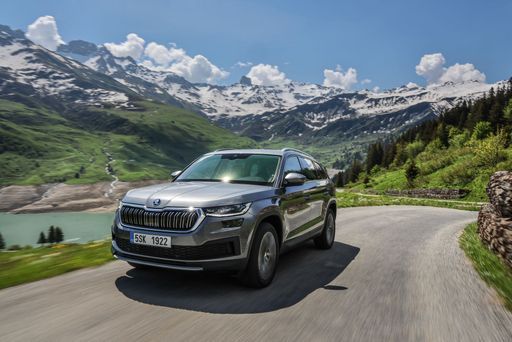
Skoda Kodiaq
BMW X3
The BMW X3 mixes Bavarian poise with everyday practicality, delivering a composed ride and a cabin that feels both premium and lived-in. It’s the sort of SUV that lets you enjoy sporty handling without sacrificing family-friendly space, so you get fun and sense in one neat package.
details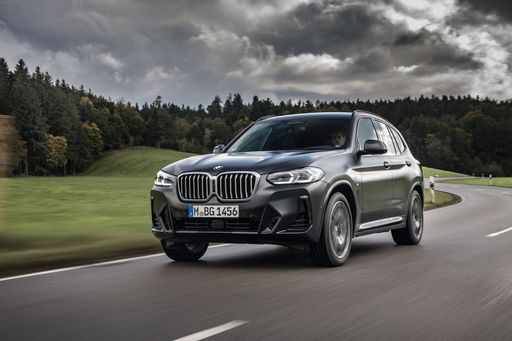
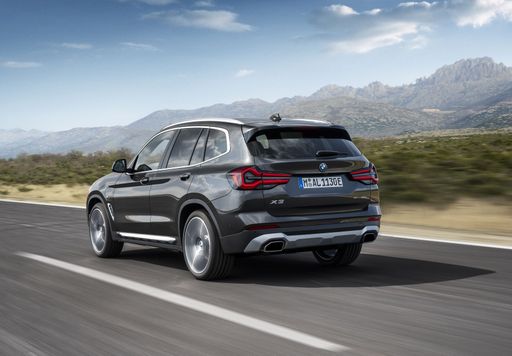
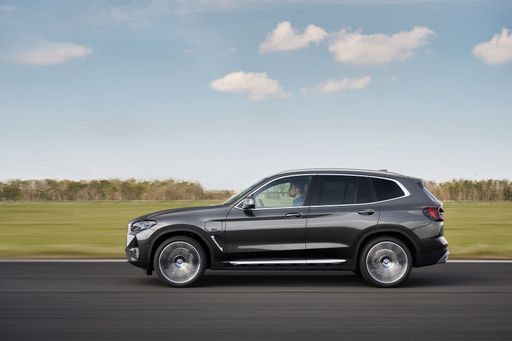
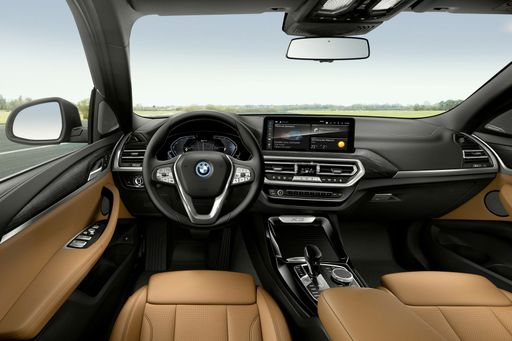
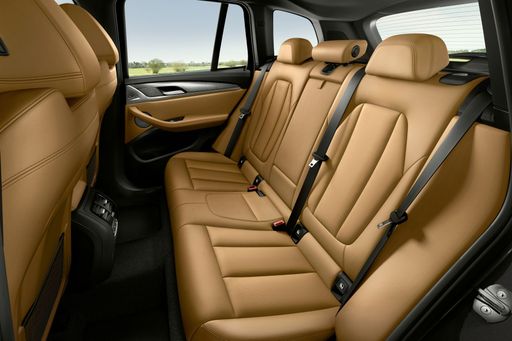
Skoda Kodiaq
The Skoda Kodiaq blends sensible practicality with surprising style, so families and weekend adventurers get roomy comfort without looking like a moving van. It feels calm and composed on the road, packs clever storage and user-friendly tech, and manages to deliver a near-premium vibe without the pretension.
details
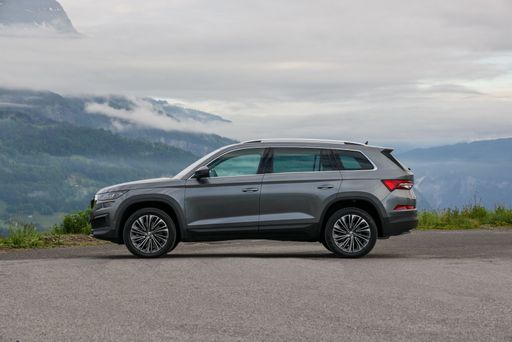
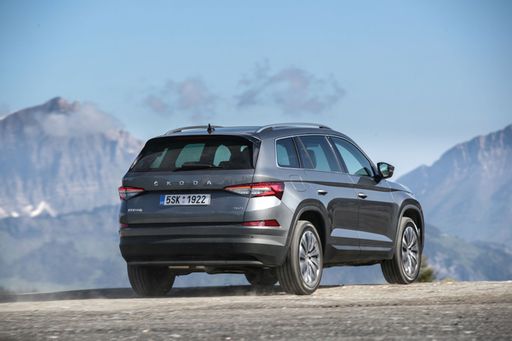
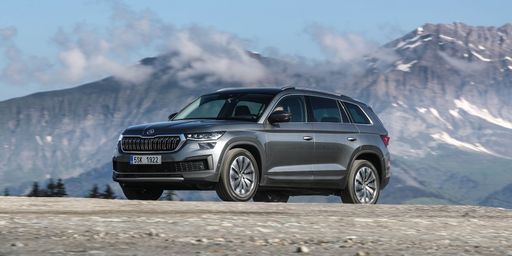
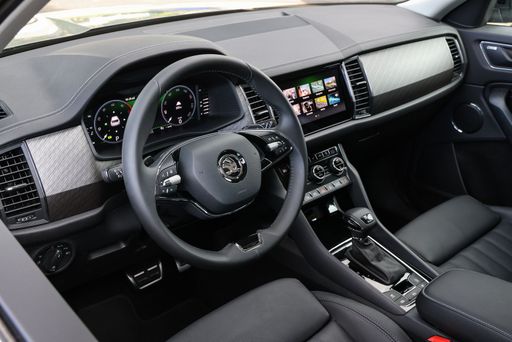
Costs and Consumption |
|
|---|---|
|
Price
51300 - 72400 £
|
Price
36800 - 49600 £
|
|
Consumption L/100km
2.8 - 7.7 L
|
Consumption L/100km
1.5 - 8.2 L
|
|
Consumption kWh/100km
-
|
Consumption kWh/100km
-
|
|
Electric Range
88 km
|
Electric Range
119 - 122 km
|
|
Battery Capacity
-
|
Battery Capacity
-
|
|
co2
64 - 175 g/km
|
co2
35 - 186 g/km
|
|
Fuel tank capacity
60 - 65 L
|
Fuel tank capacity
55 - 58 L
|
Dimensions and Body |
|
|---|---|
|
Body Type
SUV
|
Body Type
SUV
|
|
Seats
5
|
Seats
5
|
|
Doors
5
|
Doors
5
|
|
Curb weight
1930 - 2140 kg
|
Curb weight
1684 - 1970 kg
|
|
Trunk capacity
460 - 570 L
|
Trunk capacity
745 - 910 L
|
|
Length
4755 mm
|
Length
4758 - 4761 mm
|
|
Width
1920 mm
|
Width
1864 mm
|
|
Height
1660 mm
|
Height
1663 - 1683 mm
|
|
Max trunk capacity
1700 L
|
Max trunk capacity
2105 L
|
|
Payload
570 kg
|
Payload
460 - 563 kg
|
Engine and Performance |
|
|---|---|
|
Engine Type
Petrol MHEV, Diesel MHEV, Plugin Hybrid
|
Engine Type
Petrol, Petrol MHEV, Diesel, Plugin Hybrid
|
|
Transmission
Automatic
|
Transmission
Automatic
|
|
Transmission Detail
Automatic Gearbox
|
Transmission Detail
Dual-Clutch Automatic
|
|
Drive Type
All-Wheel Drive
|
Drive Type
All-Wheel Drive, Front-Wheel Drive
|
|
Power HP
197 - 398 HP
|
Power HP
150 - 265 HP
|
|
Acceleration 0-100km/h
4.6 - 7.8 s
|
Acceleration 0-100km/h
6.3 - 9.7 s
|
|
Max Speed
215 - 250 km/h
|
Max Speed
205 - 231 km/h
|
|
Torque
330 - 670 Nm
|
Torque
250 - 400 Nm
|
|
Number of Cylinders
4 - 6
|
Number of Cylinders
4
|
|
Power kW
145 - 293 kW
|
Power kW
110 - 195 kW
|
|
Engine capacity
1995 - 2998 cm3
|
Engine capacity
1498 - 1984 cm3
|
General |
|
|---|---|
|
Model Year
2024 - 2025
|
Model Year
2024 - 2025
|
|
CO2 Efficiency Class
F, E, B
|
CO2 Efficiency Class
F, G, E, B
|
|
Brand
BMW
|
Brand
Skoda
|
What drive types are available for the BMW X3?
The BMW X3 is offered with All-Wheel Drive.




